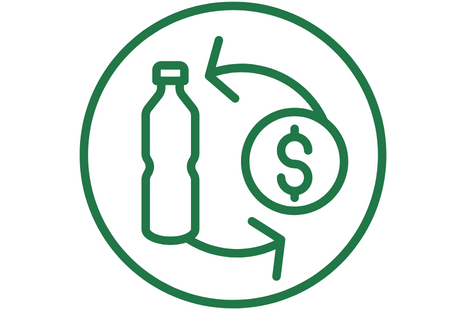Welcome!
With bottle bills introduced in 12 states and talk of a federal bill, opinions fly in all directions. Too often, advocates propose, industry opposes, legislation stalls, and progress stops. Meanwhile, every minute worldwide, 2.5 million beverage containers are buried, burned, or littered.
Bottle Bill Common Ground is a limited-series newsletter from Reloop North America highlighting two sets of evidence-based guidance that legislators, policy makers, industry, and advocates could agree on:
- 10 high-performance principles for an effective deposit return systems (DRS)
- 10 essential practices to build into legislation and the running of a DRS
In each issue, Bottle Bill Common Ground will explain a single principle or practice for a meaningful, modern DRS. We will cover topics such as ease of use for consumers, production standards for industry, and compliance and enforcement measures for government. By following this roadmap, states can achieve major environmental and economic benefits.
Here are the 10 high-performance principles:

Let’s jump in.
Our first issue starts with Principle #1 from the 10 principles, based on well-researched and documented evidence Reloop gathered on what makes DRS work for everyone.

Principle #1 recognizes that recycling containers depends first and foremost upon people’s willingness and motivation to participate. Any effective DRS must be human-centered and provide practical incentives, such as making sure participants get refunds in cash immediately.
Reloop research on the impacts of DRS modernization with a focus on ease and equity shows:
- High-performing DRSs are those designed with the redeemer in mind, be it a consumer or a canner
- Return-to-retail systems have the highest return rates — median 90%, compared with 76% in systems which either rely only on depots or have a combination of retail and depot.
- For DRS to be both easy and equitable, rural residents must be within five miles and urban residents within two miles of a redemption point.

If you haven’t already, we encourage you to subscribe to Bottle Bill Common Ground and share it widely with those who would want or need to know about these principles and practices. Working together from a common ground of knowledge, we can move good bottle bills forward.
Thank you for reading the first issue! Look for the next issue to arrive soon.
